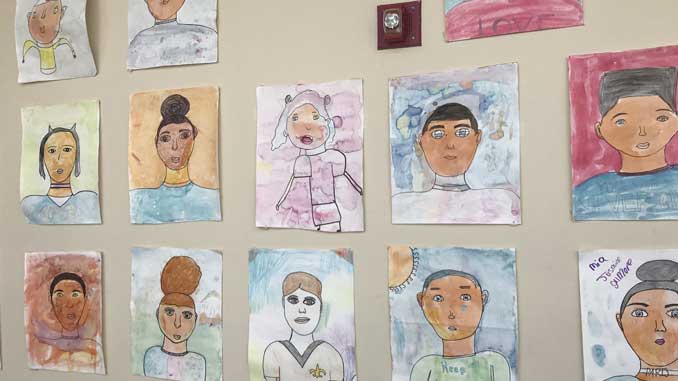
By Piper Thurman
The world may remember August 2005 like any other start of a new school year, a new job, or even the start of a new season. But New Orleans will forever remember that particular time of year because the city was hit with one of the most destructive and deadliest hurricanes the world had ever seen. Not only were lives lost but so was the history and heirlooms of families across the metro-area. Most reports cite more that within 800,000 homes, the belongings that families owned and may have passed down for generations, were either lost or destroyed. A new collaboration of public and civic groups and individuals came together through the Discovering Family Histories: An Inter-Generational Project to equip ordinary residents with tools to ensure their family legacies withstand future disasters.
“In case New Orleans was to ever see another hurricane, we want to better educate people by showing them exactly how to preserve that family history,” said Sister Bonnie Kearney, a member of the Religious of the Sacred Heart, whose society operates Duchesne House for Volunteers in the city.
Duchesne House partnered with the Community Book Center on Bayou Road, and the New Orleans Public Library to hold various Saturday workshops from Oct. 25th through Dec. 1st. The project began with a free screening of the feature film Coco on Oct. 25th, followed by an Opening Symposium on Oct. 27th. On Nov. 3rd, the project held a “How to do Ancestry Research” workshop, and on Nov. 10th a “Collecting Family Histories” workshop. The project ended with an “Archiving Family Histories” workshop on Dec. 1st and will hold a “Closing Block Party” on Bayou Road on Saturday, Jan. 12, 2019. These free workshops combined educated families on how to interview one another and handle artifacts passed down from one generation to the next.
“Being that our Catholic order had enslaved people, we started doing research to find out information about the descendants of those people,” Kearney said, about what first started the interest to create the workshops.
The Sisters of the Religious of the Sacred Heart opened Duchesne House in 2007 to house high school and college students while they volunteered in rebuilding damaged houses from Katrina. During the process of gutting and clearing houses, Kearney noted the vast amount of families that lost photo albums, wedding dresses, and various important things that had been passed down for generations, with no way to get them back.
While performing various volunteer activities around the community at the time, the sisters met Vera-Warren Williams, the Co-Founder and Director of the Community Book Center. The two organizations decided to team up and secured a grant to fund the family history workshops.
Finding the Right Tools for Preserving Histories
Local historian, expert, author, and educator, Freddi Evans, trained local residents on Nov. 10th for the Collecting Family Histories workshop. Evans wanted local residents to know of other ways to get access to their family records. According to Evans, much of Black heritage and legacy goes with the deceased to the graveyard, because instead of asking questions and getting important information while family members are still around, African-Americans often do not ask or document anything at all within their families.
“African-Americans’ most valuable family treasures are in the cemetery, because we don’t dig deep enough while our family members are still here,” she said. “The first step is to start conducting these interviews with our families now. Start asking them anything you’re interested in and see how much you begin to learn about your lineage,” Evans said.
Because she works as a Mitigation Specialist, as well as a Forensic Investigator, Jennifer Vitry was another local expert invited to talk to residents for the Nov. 10th workshop, and not only did she encourage them to ask questions, but she informed them on how to ask those questions, and how to properly examine family history.
“Sometimes I deal with people that aren’t ready to talk about their family history or their past, so it takes time,” said Vitry. “A good interviewer is patient but also adamant, so with your family members or whoever you decide to interview or ask questions, be patient but never just give up on your question,” Vitry said.
With the holidays around the corner, participants were asked to talk about who they think they get their characteristics from and to create a page that represents themselves and their history. The organizers said that they eventually want to spread these kinds of workshop exercises to younger people in the community, because the next generation is the group that will be the gatekeepers of these family stories in New Orleans.
Along with learning how to better preserve history and conduct family interviews, participants were also able to bond more with their own families, while feeling like they were learning things they didn’t know. Mental Health Specialist Jinaki Flint expressed the trauma she sees in her patients everyday due to identity issues and historical patterns throughout families.
The project aims to have the workshops repeated with younger participants and that eventually they can host sessions at local colleges, universities, and high schools.
Recommended For You.
















Be the first to comment